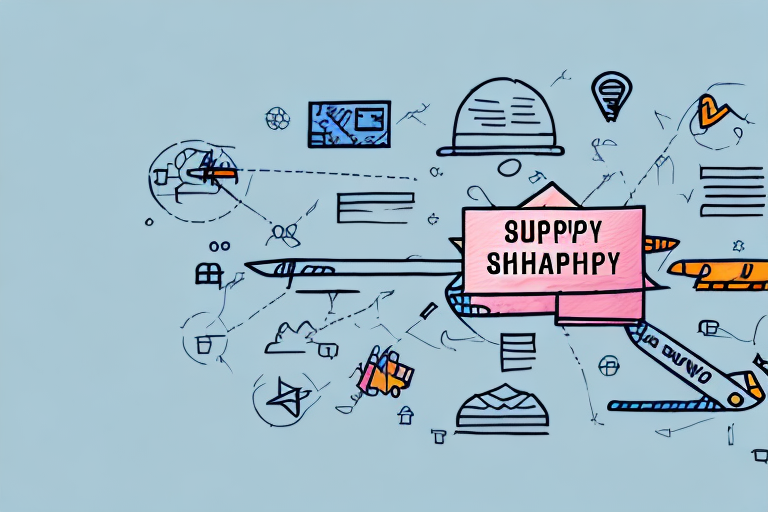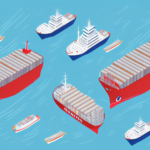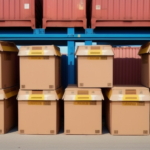The Benefits of Becoming a Known Shipper in the Supply Chain
As a shipper in the supply chain, there are numerous benefits to becoming a known shipper. Being a known shipper means that the airline or carrier has pre-approved your company as a trusted entity with proper security procedures in place. This status not only improves your shipping rates but also offers added advantages in terms of security, cargo screening requirements, and customer satisfaction. In this article, we will explore what being a known shipper entails, how to become a known shipper, and the advantages of holding this status.
What is a Known Shipper in the Supply Chain?
A known shipper is an entity authorized by an airline or carrier to ship their cargo after undergoing a screening process to ensure that their cargo is safe and poses no security threat. Airlines, in particular, must adhere to strict regulations to ensure that planes and passengers are not at risk from hazardous materials. Consequently, airlines screen all cargo before it can be loaded onto a plane. Being a known shipper ensures smoother and quicker shipping processes, as your cargo does not need to undergo additional screening.
However, becoming a known shipper is not an easy process. The entity must go through a rigorous screening process, including:
- Background checks
- Security audits
- Inspections of facilities
- Compliance with security regulations
Once an entity becomes a known shipper, they must maintain their security standards to retain their status. Failure to comply with regulations or security breaches can result in the revocation of their known shipper status, causing delays and additional screenings for their cargo.
How to Become a Known Shipper in the Supply Chain
The process of becoming a known shipper varies depending on the carrier and the country of origin. Typically, the steps to be approved as a known shipper include:
- Register with the carrier
- Provide evidence of a secure supply chain process and background information about your company
- Undergo a vetting process by the carrier to ensure that your company is a trusted entity with proper security procedures in place
- Pass a cargo screening process to ensure that your cargo poses no security threat
Once approved, you will be added to the carrier’s list of known shippers, making your cargo eligible for expedited shipping.
Being a known shipper also comes with added responsibilities, such as ensuring that your cargo is properly packaged and labeled, providing all necessary documentation to the carrier, and complying with random security checks to maintain cargo security throughout the supply chain.
The Role of Known Shippers in Supply Chain Security
One of the primary reasons for becoming a known shipper is to ensure a secure supply chain. Airlines and carriers must screen all cargo to prevent potential threats to the safety of aircraft and passengers. Known shippers have already undergone a screening process and are certified by the carrier as trusted entities with proper security procedures. This certification means that their cargo does not require additional screening, thus expediting the shipping process and maintaining overall supply chain security.
According to the 2023 Supply Chain Security Report, known shippers experience an average of 30% faster cargo processing times compared to unknown shippers. Additionally, known shippers often benefit from reduced security fees and prioritized handling.
Moreover, becoming a known shipper can lead to significant cost savings. Known shippers are often eligible for discounted rates and other incentives from carriers due to their trusted status. This is particularly beneficial for businesses that frequently ship large volumes of cargo.
However, achieving known shipper status requires a significant investment of time and resources. The screening process is rigorous and may involve background checks, site visits, and other security measures. Additionally, known shippers must continuously maintain their security procedures and certifications to retain their trusted status.
Advantages of Being a Known Shipper in the Supply Chain
There are numerous advantages to being a known shipper, including:
- Expedited shipping processes: Faster cargo handling and reduced processing times.
- Priority access to carrier capacity: Guaranteed space for your shipments even during peak times.
- Better shipping rates: Access to discounted rates and favorable pricing structures.
- Lower risk of cargo delays: Reduced chances of delays due to additional screenings.
- Increased trust and credibility: Enhanced reputation with carriers and customers.
- Better allocation of resources and capacity: More efficient use of shipping resources.
Additionally, known shippers often receive preferential treatment during times of high demand or capacity constraints. Carriers prioritize known shippers over unknown ones, ensuring timely and reliable deliveries. This prioritization can be crucial for businesses that rely on just-in-time inventory systems.
Risks of Not Being a Known Shipper in the Supply Chain
Not being a known shipper can result in several risks and disadvantages, such as:
- Additional cargo screening processes, leading to shipment delays and increased costs.
- Difficulty in securing carrier capacity, especially during peak shipping seasons.
- Higher shipping rates compared to known shippers.
- Increased likelihood of cargo being subjected to random security checks.
- Potential security breaches due to lack of pre-screening, posing threats to aircraft and passenger safety.
For example, the Global Cargo Security Standards Report highlights that unknown shippers face a 25% higher risk of cargo delays and additional security screenings, which can disrupt supply chain efficiency and incur higher operational costs.
How Being a Known Shipper Can Improve Your Shipping Rates
Becoming a known shipper can lead to better shipping rates as carriers are more likely to offer preferred pricing to trusted entities with proper security procedures. Airlines and carriers, dealing with limited capacity, prioritize resources for entities that pose the least risk and are most reliable. This prioritization can significantly improve your shipping costs and overall supply chain efficiency.
In addition to better shipping rates, known shippers may access:
- Expedited shipping options: Ideal for time-sensitive shipments.
- Flexible scheduling: Priority in scheduling pickups and deliveries.
- Exclusive carrier programs and services: Access to services not available to other shippers.
However, meeting the security requirements to become a known shipper can be time-consuming and costly. Requirements may include background checks, facility inspections, and employee training programs. It's essential to evaluate the benefits against the costs to determine if pursuing known shipper status aligns with your business objectives.
The Process of Being Approved as a Known Shipper by Airlines
The approval process for becoming a known shipper varies by airline and country, but generally includes the following steps:
- Registration: Submit an application with the airline.
- Information Provision: Provide detailed information about your company and supply chain processes.
- Vetting Process: Undergo a thorough vetting process to assess your security procedures.
- Cargo Screening: Ensure that your cargo poses no security threat through screening.
Upon approval, you will be added to the airline’s list of known shippers, qualifying your cargo for expedited shipping processes and access to preferred pricing.
How to Maintain Your Status as a Known Shipper in the Supply Chain
Maintaining your status as a known shipper requires ongoing efforts to ensure that your security procedures remain up to date and meet the standards set by the airline or carrier. This involves:
- Regular updates to security protocols
- Periodic reviews and audits by the carrier
- Continuous training for employees on security practices
- Timely compliance with any changes in regulations
By maintaining your known shipper status, you can continue to benefit from expedited shipping processes and access to preferred pricing, ensuring sustained efficiency and reliability in your supply chain operations.
Known Shippers and Cargo Screening Requirements
As a known shipper, your cargo has already undergone a screening process, ensuring it poses no security threat. This pre-screening means your cargo does not require additional screening before being loaded onto a plane. However, cargo screening requirements can vary by country and carrier. It is essential to stay up to date with the latest regulations to maintain your known shipper status.
For the most accurate and current cargo screening requirements, refer to the International Cargo Screening Guidelines.
The Impact of Being a Known Shipper on Customer Satisfaction
Becoming a known shipper can significantly improve customer satisfaction by providing:
- Expedited shipping processes: Faster delivery times enhance customer experiences.
- Better allocation of resources and capacity: Ensures reliable shipping options.
- Increased trust and credibility: Builds long-term relationships with customers.
Additionally, being recognized as a trusted and reliable shipper strengthens your overall reputation in the industry, fostering customer loyalty and repeat business.
The Importance of Trust and Credibility as a Known Shipper
Being a known shipper signifies that you have been certified by the airline or carrier as a trusted entity with proper security procedures in place. This certification is crucial for building trust and credibility with both carriers and customers. By demonstrating adherence to stringent security protocols, you establish yourself as a reliable and trustworthy partner within the supply chain.
Trust and credibility can lead to enhanced business opportunities, as carriers are more likely to prioritize and collaborate with known shippers. This trust also extends to your customers, who can have greater confidence in the reliability and security of your shipping services.
Examples of Companies That Have Benefitted from Becoming a Known Shipper
Many companies, both large corporations and small businesses, have benefited from becoming known shippers. For instance:
- TechCorp Industries: Improved shipping rates led to a 15% reduction in overall logistics costs.
- GlobalGoods: Enhanced supply chain security resulted in a 20% increase in customer satisfaction scores.
- SupplySecure: Access to preferred carrier programs facilitated faster market entry for new products.
By being certified as trusted entities, these companies have streamlined their shipping processes, accessed preferred pricing, and significantly improved their supply chain efficiency and profitability.
In conclusion, becoming a known shipper offers numerous benefits for businesses involved in the supply chain. By undergoing a rigorous screening process and being certified as a trusted entity, you can streamline your shipping processes, access preferred pricing, and enhance your overall supply chain efficiency. For businesses that frequently ship goods, becoming a known shipper is an essential step in remaining competitive and maintaining a reliable reputation in the industry.






















